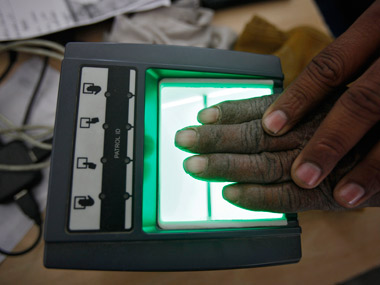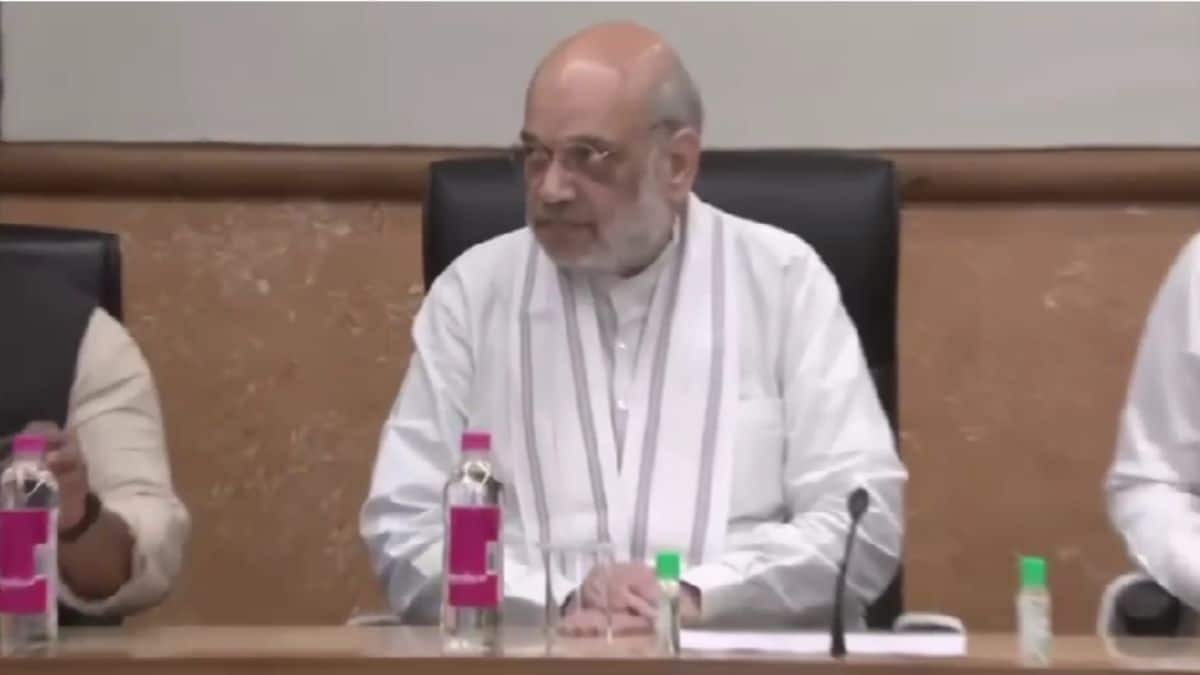By Sharanya Gopinathan In Living a Feminist Life, author Sara Ahmed talks about the idea of having and equipping your “feminist toolkit”: A set of tools, skills, laws, ideas and habits that women can use to fight the patriarchy and live a happy life. As women living in a patriarchal world, you often get the feeling that you need every single tool available to you to keep surviving and fighting the good fight, and that each of these tools is incredibly valuable. I think that’s why it feels extra shocking and scary right now that we’re on the brink of losing a potential tool, one that has been successfully used to help women in the past. In its relentless march towards universal Aadhaar, the government is currently arguing before the Supreme Court that
citizens don’t, in fact, have a fundamental right to privacy. While this should scare everyone in the country, women especially should be particularly concerned with the upcoming judgment and what it could potentially mean for us. [caption id=“attachment_3439738” align=“alignleft” width=“380”] Representational image. Reuters[/caption] You see, privacy and the right to privacy has been something that’s
helped women a lot (one notion of privacy has also hurt us a lot, but more on that later). While the SC hasn’t legally recognised a specific right to privacy in the Constitution, it has in the past understood Article 21, which guarantees your fundamental right to life and liberty, in a way that sees privacy as an integral part of what it means to lead a free and good life. This concept of privacy has often been used in India, alongside other rights, to interpret laws and regulations that have helped women in many ways. Take stalking, for example. In the aftermath of the 2012 December Delhi gang-rape, an
amendment to the existing “rape law” made several changes based on the idea of a women’s privacy and the need to protect it from being violated. The additions specifically mentioned the offences of physical and cyber stalking, making it clear that privacy was something that the government recognised as important to survivors, and that
violations to privacy were violations to a woman’s safety. That same amendment criminalised some other things too. In an attempt to deal with ‘peeping Toms’ (almost as cute a phrase as ‘roadside Romeos’, and one step away from good old ‘eve-teasers’), it laid down that voyeurism, or spying on woman in a situation where she has the expectation of privacy, was a specific offence. The Delhi High Court invoked this law and the right to privacy when sentencing a man in an
April 2016 case for spying on a woman as she was using the toilet. The point was not that the woman had come to any physical harm because she’d been watched by a creep, but that her security had been threatened because of an invasion of her privacy. The amendment also banished the practice of asking about a rape survivor’s sexual history in court. This used to be a real practice, by the way, and a factor that judges have actually based their judgments on in rape cases — as in the famous
Mathura case where a judge ruled that Mathura (a minor Adivasi girl) could not have been raped by two police constables inside a police station because she was “
habituated to sexual intercourse”, meaning that she had had sex before so how could she have been raped (yeah don’t even try to understand it, it makes zero sense). The notion of privacy remains one of the reasons why media houses are not allowed to publish the names of rape survivors. All of these laws were put in place to ensure women’s safety, and they show how everyone, including the government, understands that privacy is a huge part of what it means to be safe and secure as a woman. Privacy is also one of the arguments for creating a law that addresses the nasty trend of ‘revenge porn’, where angry ex-lovers post nude pictures or videos of their former partners online after a break-up or disagreement. In April, a Delhi University student
committed suicide after her ex-boyfriend threatened to post ‘revenge porn’ pictures of her online. ‘Revenge porn’ has become such a widespread problem in India that the
government is trying to find a way to criminalise it, and the idea that the practice violates a woman’s privacy remains a vital reason to support it. Saying that we don’t have a fundamental right to privacy automatically puts a lot of other arguments on shakier ground. For example, a large part of the Naz Foundation’s arguments against criminalising certain sexual acts under Section 377
rests on the assumption that we have a certain right to privacy, and that the State shouldn’t invade the privacy of consenting adults “within four walls”. However, women still have to invoke the notion of privacy carefully and specifically, since it can also be turned and used against us. Lawyer Gautam Bhatia points out that privacy shouldn’t be ascribed to a certain place (“the bedroom”, “within four walls of the home”) or a certain social arrangement (“the family” or “marriage”), since that allows the State to also conveniently ignore power imbalances and violence within the home or family, and we start slipping down a slippery slope to allowing things like
marital rape to be legal, and for the police to casually dismiss domestic violence as “family matters”. The idea of privacy that we’re fighting for should be given to the individual, not a space or a relationship, and the line for privacy should be drawn at violence, nothing else. The notion of individual privacy isn’t just important as an argument for interpreting our laws, it’s also a tool to fight creeping State control. The government has always loved (and will always love) regulating women and their bodies and telling us what to do with them. Last month, the Tamil Nadu government suddenly decided that all women must officially break the news of pregnancy to the government and if they want their children to be issued birth certificates. This truly bizarre new regulation is scheduled to roll out this month. If someone had told me six months ago that I’ll soon have to compulsorily report my pregnancy to the government, I’d probably have laughed them out of town. And this is why it’s so important to have the right to privacy always available in your feminist toolkit: For situations that you can’t even imagine or foresee yet. Ten years ago, we would never have imagined that hackers would find a way of spying on us through our webcams, or that ex-boyfriends could post our nude selfies online, or that Facebook
patent technology to record our facial expressions while we watch videos, or that the government would force us to give up our fingerprints and retina scans, or force us to dutifully report all our pregnancies to them. Clearly, we can’t imagine today what new tricks people, big corporations or the government will cook up tomorrow — but being able to invoke a fundamental right to privacy is an invaluable tool against such attacks on women. Not being able to use this tool not only weakens some of the protections we have now, but leaves us that much weaker in the fights to come. And believe me, the fights are going to keep coming. It’s also pretty ironic when you look at who exactly is arguing that Indians should not have an absolute right to privacy. The same government that’s headed by a man
famous for his refusal to be accessible to the media, and who’s issued notices to
ministers not to talk to the press, is now claiming that citizens do not have the right to their privacy. If you look around you, you’ll notice that we’re living in a country where the government is becoming less and less transparent, while our own lives are being increasingly stripped bare to government monitoring and scrutiny. In a real democracy, which we pretend to live in, don’t you think it should be the other way around? The Ladies Finger (TLF) is a leading online women’s magazine delivering fresh and witty perspectives on politics, culture, health, sex, work and everything in between.
In its relentless march towards universal Aadhaar, the government is currently arguing before the Supreme Court that citizens don’t, in fact, have a fundamental right to privacy. While this should scare everyone in the country, women especially should be particularly concerned with the upcoming judgment and what it could potentially mean for us.
Advertisement
End of Article


)

)
)
)
)
)
)
)
)



